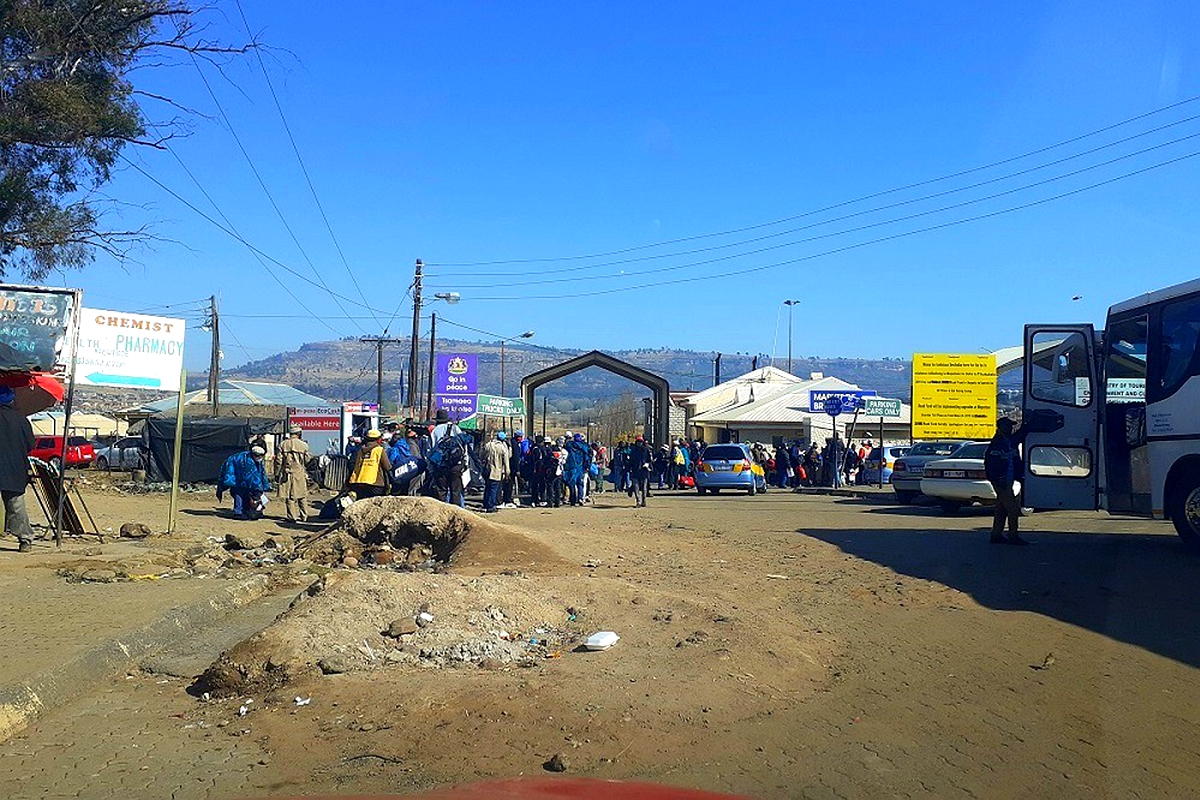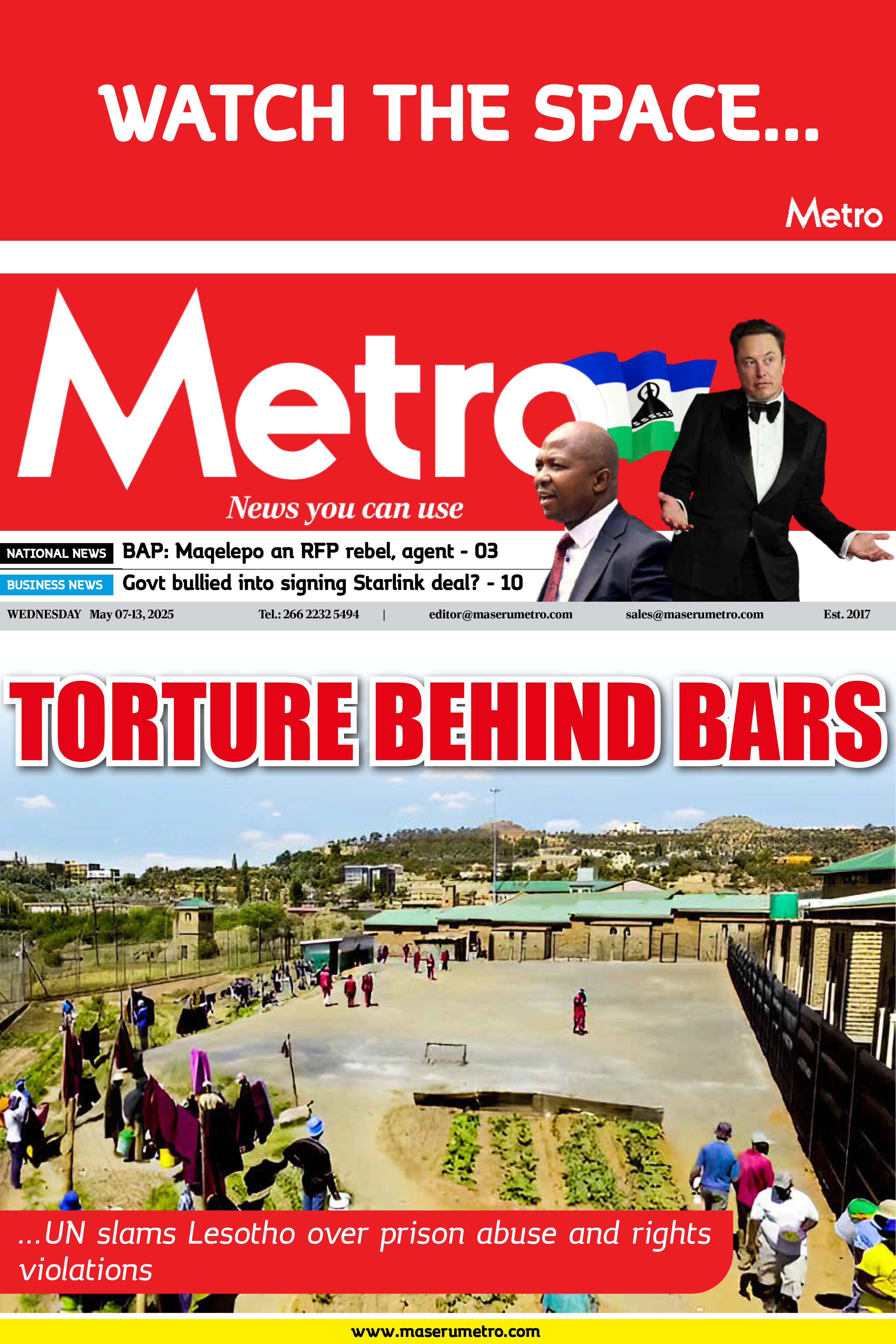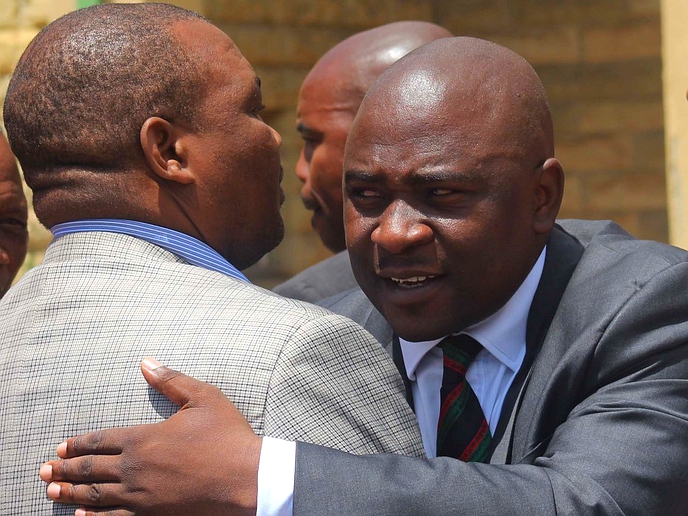THE effects of the COVID-19 pandemic since its advent in 2019 and all restrictions that have been put in place in order to curb the spread of the fatal virus have among others forced border management services to be unusually second-rate.
business
Dec. 14, 2021
OWN CORRESPONDENT
3 min read
Clashing schedules at border affect tax collection

Travelers gather at the Maputsoe/Ficksburg border
Story highlights
Efforts by border managers to keep the virus under control instigated several challenges that made movement across the borders relatively difficult.
In spite of all the challenges met, they had to find a way out to continue providing services to travelers and that included scheduled time operations to among others open and close borders and the kind of people who are allowed to cross borders.
Mantši Tšeane, the Qacha's Nek District Administrator (DA), said things have been uncomfortable on their side since the outbreak of the pandemic, with the South African (RSA) border management schedules clashing with theirs and causing a lot of confusion to travellers in the process.
He said the RSA border opens at 8am and closes at 4pm while Lesotho’s opens at 730am and closes at 6pm every day.
Mr Tšeane said the time differences make their work a bit difficult because normally they should complement one another as the two sides work hand in hand on a daily basis.
“Traders now have to leave their vehicles, especially loaded lorries on the other side of the border on their way back to home because the border closes too early, this has led to theft of their equipment and loss of several property because there is insufficient security at the border,” he said.
Enjoy our daily newsletter from today
Access exclusive newsletters, along with previews of new media releases.
He said they try their best to harmonise the situation at the border but to no avail, adding that lately, that has resulted in countless cases of illegal entry and departure from the country.
These acts, he said not only put people’s lives at risk because they cross at dangerous points but they also affect proper collection of taxes by the Lesotho Revenue Authority (LRA).
“This is because taxes cannot be collected at these dangerous points where people illegally cross, especially at night,” he said.
He therefore pleaded with all the relevant stakeholders to get fully involved in the matter, especially at this time of the year when many people who work in South Africa return to Lesotho for the holiday season,” he adds. LeNA






